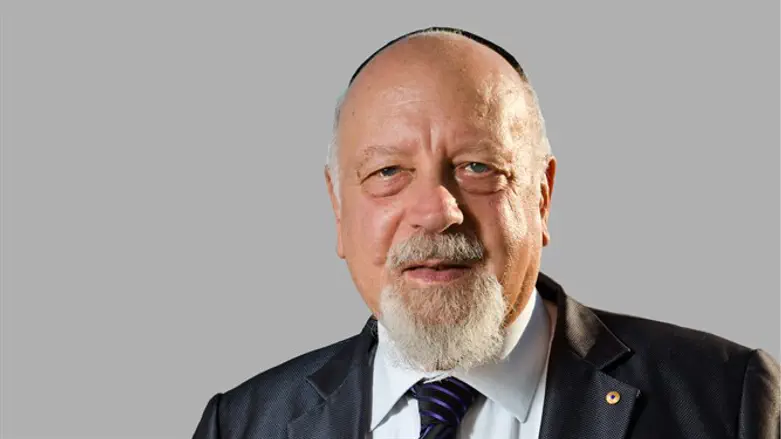
JEWISH MONKS & NUNS
Q. Why are there no Jewish monks and nuns?
A. Judaism has had its ascetics, but normative Jewish teaching does not approve of withdrawal from the world.
JH Hertz points out in his Torah commentary that the famous chapter 19 of Vayikra presents holiness not as a flight from reality but a program of holiness within reality – not being holy by abandoning the world but engaging with the world and living a holy life in the midst of marriage, business, agriculture, etc.
The monastic life seems to view the world as irredeemable; the Jewish thinkers speak of the holy and the not-yet-holy.
HAMMURABI & THE HEBREWS
Q. Someone told me that the laws in the Torah were taken from the code of Hammurabi. Could this be correct?
A. Whoever told you this is a hundred years out of date.
Scholarship has long rejected the view of Franz Delitsch who, in 1902, wrote in his "Babel and Bible" that the laws of the Torah were mostly taken from Hammurabi.
Since Moses had a sophisticated education, he might have known of the Hammurabi Code but it is a gross exaggeration to derive the Torah from Hammurabi.
The two more or less share certain principles, probably because every society has a system of justice.
The differences are massive, especially when it comes to the spirit of the laws.
Hammurabi has a cruel policy towards slaves whereas the Torah treats the servant as a human being. Hammurabi lacks the Torah feeling for the poor and downtrodden, the orphan and the widow, the servant and the stranger, and the Torah spirit of love and mercy.
Hammurabi also lacks the Torah sense of service and support for others, the spirituality and Godliness of the human community.
HISTORY & DESTINY
Central to the reading this week is the story and personality of Isaac. The Torah (Gen. 26) tells us contradictory things about him.
He became richer and richer, but presumably only because he took initiatives and start-ups. At the same time, if he wanted water supplies he went back to his father Abraham’s wells and dug again where his father had dug – no new initiatives, no start-ups, no originality.
Life always has two aspects, history and destiny. The wise person knows how to intertwine them, learning from and where necessary preserving the ways of the past, but knowing that sometimes the past needs to be discarded and replaced with new visions and plans.
TWO BROTHERS
Isaac had two sons, the twins Esau and Jacob, who were rivals and often opponents. Even before they were born, the sons were at loggerheads.
The Torah says (Gen. 25:22) "vayitrotz’tzu habanim", "the sons struggled"; the sages derive the verb from "rutz", "to run", suggesting that when their mother passed a place of learning, Jacob tried to get out of the womb, and when she passed a place of idolatry, Esau tried to get out.
Once they were born, the two sons remained locked in combat. Isaac didn’t always realise how he was being manipulated by Esau. Esau would come to his father with complicated, minute halakhic questions such as whether straw or salt had to be tithed. Esau rejoiced that his son was so apparently meticulous in his religious observance.
The truth, as Rashi tells us, is that Esau was "ish yode’a tzayid", "a man who knew how to hunt" – in a metaphorical way, hunting in the sense of ensnaring his father with his apparent piety which was really mere pretence.
Rivkah, the wife of Isaac, knew what was going on and worked out an elaborate scheme to show Isaac how gullible he was.
TWO CROWNS
The sidra (Torah reading) begins with something that looks quite obvious – "These were the generations of Isaac the son of Abraham; Abraham begot Isaac" (Gen.25:19).
Why does the Torah seem to say the same thing twice in one verse? Apart from the idea in the Talmud (BM 87a) that people needed to be assured that Isaac really was the son of Abraham and not a result of adultery by Sarah, a Midrash quoted by Rashi says that Abraham was crowned with Isaac and Isaac was crowned with Isaac.
They were so proud of each other that they brought a special smile, a special quality of dignity to one another.
Rabbi Raymond Apple was for many years Australia’s highest profile rabbi and the leading spokesman on Judaism. After serving congregations in London, Rabbi Apple was chief minister of the Great Synagogue, Sydney, for 32 years. He also held many public roles, particularly in the fields of chaplaincy, interfaith dialogue and Freemasonry, and is the recipient of several national and civic honours. Now retired, he lives in Jerusalem and blogs at http://www.oztorah.com